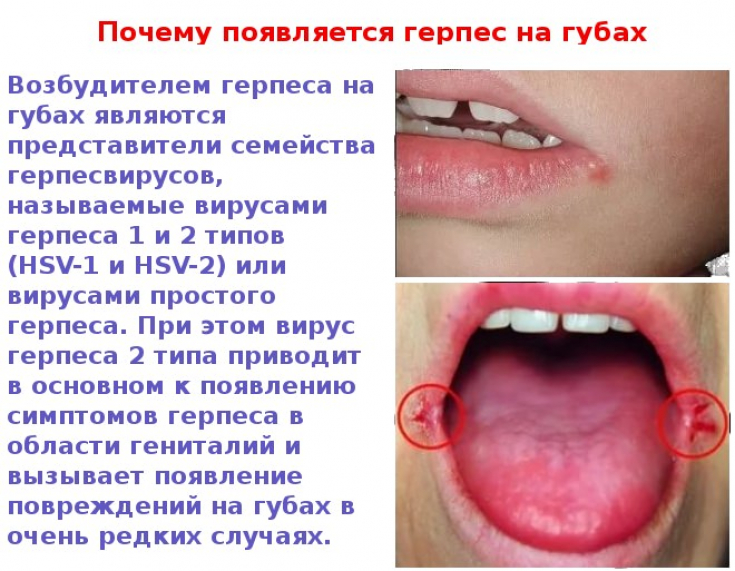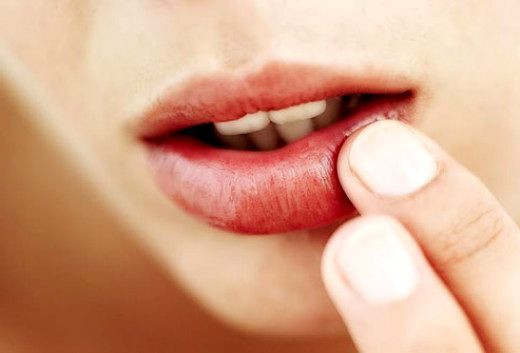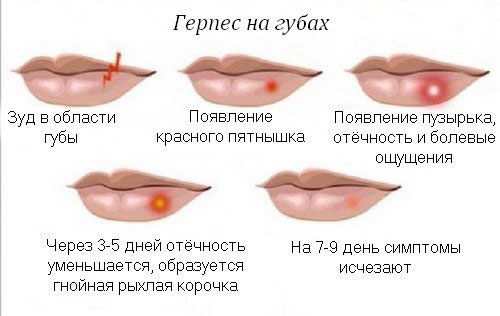Herpes simplex is one of the most common viral diseases in the world (WHO, 1996). Herpes simplex infection is possible at any age.
At the beginning of the disease, a primary herpetic rash appears, grouped vesicles form, and the general condition of the patient worsens. Later, under conditions of certain disorders of humoral and cellular antiviral immunity, including suppression of the interferon system, the infection becomes recurrent.
Only in our article on estet-portal.com find out the latest proven effectiveness of complex treatment of recurrent herpes simplex.
Approaches to the treatment of herpes
The data of recent publications prove that the herpes simplex virus can damage the cells of the immune system, which leads to the formation of a kind of "vicious circle". An increasing number of researchers attribute recurrent herpes simplex (RPG) to diseases of an immunopathological nature.
Follow us on Instagram!
There are many reports of attempts to use various immunomodulators for the treatment of herpes, both for monotherapy and in combination with antiviral drugs, as well as individually selected immunomodulators for monotherapy.
Several approaches to anti-relapse treatment of RPG are known:
1) long-term, for several months, sometimes a year, continuous course of acyclovir (suppressive antiherpetic therapy);
2) therapy with antiherpetic vaccines;
3) therapy with immunomodulatory drugs and interferon inducers.
Rosacea treatment: individual plan for different forms
The effectiveness of the method of treatment of RPG was evaluated, which combines prolonged suppressive therapy with acyclovir and, according to an individual choice, the appointment of immunomodulators, taking into account the results of immunograms and the sensitivity of lymphocytes to them.

We compared the effectiveness of the complex method of traditional suppressive therapy with acyclovir, acyclovir in combination with immunomodulators without taking into account the sensitivity of lymphocytes to them.
Object and methods of investigation of patients with herpes
The study involved 50 patients (18 women and 32 men) with a diagnosis of RPG (in the area of the vulva, nasolabial triangle and buttocks). The age of patients is from 19 to 62 years. The duration of the disease ranged from 4 months to 12 years. The recurrence rate ranged from 2 within 1 month to 1 within 2 months. In some patients, remissions up to 4 months were observed. The duration of relapse ranged from 2 to 12 days.
Localized linear scleroderma: types, treatment
Depending on the method of herpes treatment, patients are divided into 3 groups:
1st group − 16 patients who received a course of suppressive antiherpetic therapy (acyclovir at a dose of 200 mg 3 times a day) for 6 weeks;
2nd group − 22 patients who, along with suppressive therapy with acyclovir, were prescribed individually selected immunocorrectors, taking into account the sensitivity of lymphocytes to them in vitro;

3rd group− 12 patients with herpes received acyclovir 200 mg orally 3 times a day for 6 weeks and immunocorrectors, the sensitivity of leukocytes in vitro to which was minimal or absent.
Immunological examination of patients was carried out in accordance with the requirements of the WHO Memorandum on Level I and II tests.
The absolute number of lymphocytes, their main populations (T, B-0-lymphocytes) and subpopulations (T-helpers, T-suppressors, active T-lymphocytes) was determined, the functional activity of T-cells was evaluated according to the lymphocyte blast transformation test (RBTL) ) with phytohemagglutinin (PHA) and B-lymphocytes by the content of immunoglobulins IgA, G, M in the blood serum. In parallel, the phagocytic ability of neutrophils was assessed.
Zips at the corners of the mouth: the etiology and treatment of angular cheilitis
Procedure for testing cell sensitivity to immunomodulators
In patients of the 2nd and 3rd groups, the sensitivity of leukocytes to such immunomodulators as splenin, thymogen, laferon, cycloferon, sodium nucleinate was determined. These immunomodulators were prescribed in doses and according to the schemes provided for by the relevant instructions. Laferon and cycloferon, in addition to the immunomodulatory effect, also act as highly active inducers of endogenous interferon.
Patients of all groups did not take drugs that affect the state of the immune system for 1 year before the start of treatment. After the end of treatment, during the year, all patients were under outpatient supervision at the place of residence.
In some patients, an immunological study was performed after 1 month. Treatment outcomes were assessed as:
− significant improvement (no relapses during treatment, reduction in their duration and prolongation of the remission period by 2 times or more, improvement in general condition),
− improvements (reduction in the duration of relapses, an increase in the remission period by less than 2 times),
− no effect (duration of remission did not increase).
The data obtained were processed using Pearson's test, χ2.
The results of the use of immunomodulators
According to the data of immunological studies in patients of all clinical groups in the interrecurrent period, secondary immune deficiency associated with impaired T-cell immunity was revealed. In 72% (in 36 out of 50) patients, a decrease in the total number of T-lymphocytes was noted, in 84.2% (in 42 out of 50) a violation of the ratio of T-helpers / T-suppressors (T-x / T-s) due to a sharp decrease T-s.
With individual selection of immunomodulators, the effectiveness of the proposed scheme of anti-relapse treatment of RPG significantly increases. According to the study, with a combination of acyclovir and individually selected immunomodulators, a positive effect was noted in 86.6% of patients.
Consequently, the appointment of immunomodulators in combination with long-term suppressive therapy with acyclovir significantly reduces the duration of relapses, increases the periods between them, improves and in some cases normalizes the parameters of T-cell immunity in patients. An individual approach to the appointment of immunomodulators contributes to an 8-fold increase in the effectiveness of immunocorrective therapy.
Vitiligo Therapy with Innovative Cell Transplantation
The results of immunological studies in patients of all clinical groups in the interrecurrent period indicate the formation of secondary immune deficiency due to impaired T-cell immunity. Conducting long-term suppressive therapy with acyclovir in patients with RPG does not produce an anti-relapse effect. After the end of the course, the frequency of relapses does not decrease.

The appointment of immunomodulators against the background of prolonged treatment with acyclovir helps to reduce the duration of relapses and prolong remission periods several times. Prescribing immunocorrective therapy to patients (taking into account the sensitivity of lymphocytes to immunomodulators) significantly increases the effectiveness of treatment.
Filaggrin gene mutations as a cause of atopic dermatitis







Add a comment